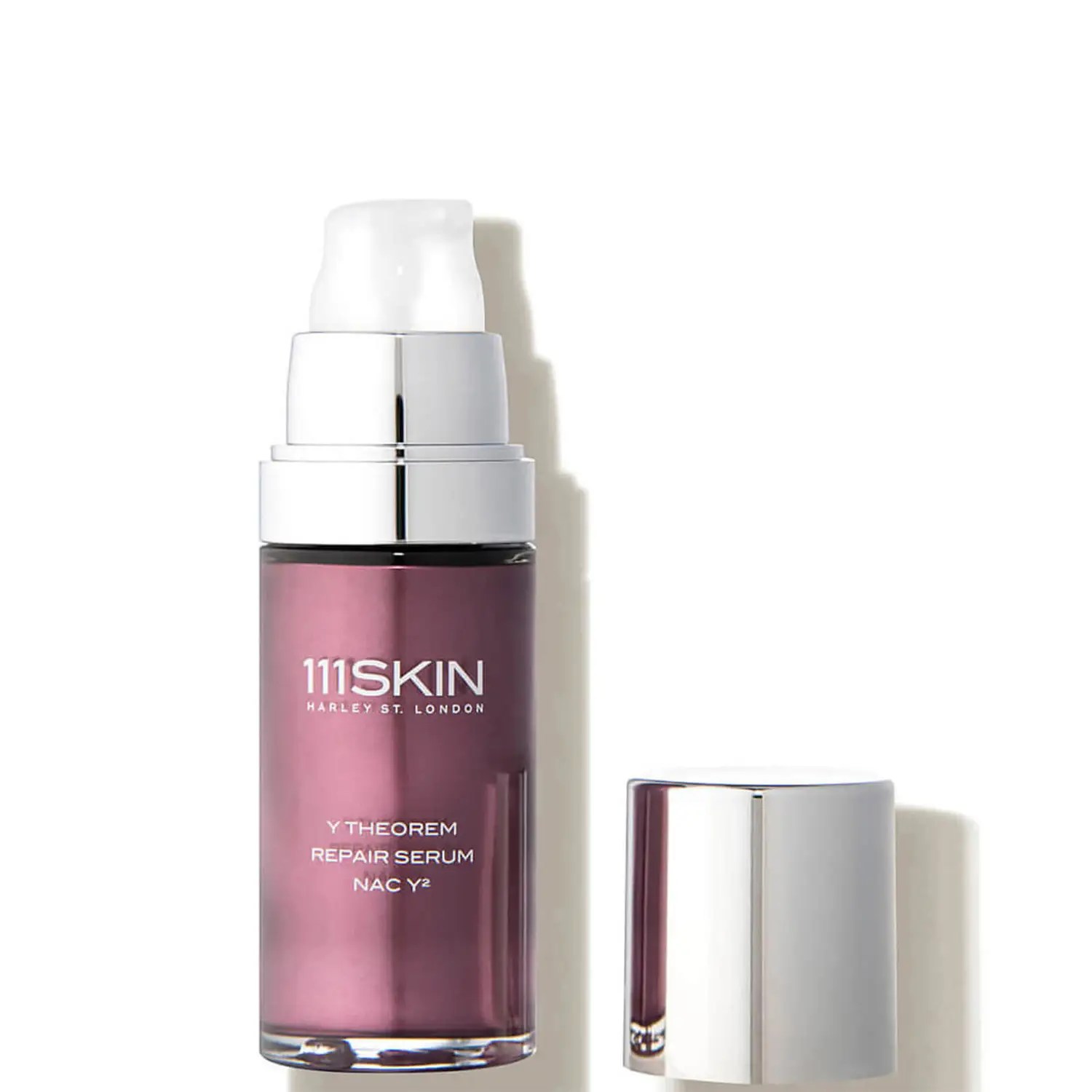Elon Musk and Jeff Bezos aren’t the only ones exploring the final frontier: Skin care is heading to space.
Back in 2020, while the rest of us were trying out new cleansers and moisturizers in our bathrooms, Estée Lauder embarked on the ultimate social distancing project. The company rocketed its Advanced Night Repair Serum into orbit for testing aboard the International Space Station, joining a growing list of brands that have begun to ship their products to space.
“Space is a laboratory for aging,” says Yannis Alexandrides, MD, the board-certified cosmetic surgeon and restorative surgery specialist behind luxury skin-care brand 111SKIN. “There is no protection from the atmosphere, and space has harmful, intense, cosmic radiation and a lack of gravity, which thins the skin and other organs of the body.”
Studies have found that spaceflight may speed up the aging process thanks to the fact that the microgravity environment beyond the stratosphere is more aggressive on the dermis. When completing space missions, astronauts have noticed that their skin is thinner, drier, more inflamed, and more susceptible to cuts and bruises—all of which are symptoms of sped-up skin aging.
With that in mind, testing products in space is akin to training at a high altitude before running a race at sea level: By the time you drop your elevation, you’ll be in beast mode thanks to the fact that you’ve prepped your body for the same workout in more extreme conditions. “Products that are effective in the harsh conditions of space provide a shield of protection on earth,” says Dr. Alexandrides. In other words, if a product can ‘slow down time,’ so to speak, in an arena that accelerates aging, it will likely perform extremely well back on our planet. As Dr. Alexandrides puts it, “If the [skin-care] ingredients work in space, imagine what they can do on earth!”
The concept of sending skin care into the cosmos began back in 2011, when scientists from the Soviet Space Program reached out to Dr. Alexandrides for help treating astronauts with wound healing while the were in space. This astral exploration gave rise to the development of 111SKIN’s Dramatic Healing Serum (which is now known as the Y Theorem Repair Serum), “a formulation that augments your body’s natural healing and aging mechanisms through the use of innovative sponge technology,” says Dr. Alexandrides. The serum also includes a unique antioxidant combo called NAC Y2, which helps boost production of our body’s innate antioxidants.
Dr. Alexandrides began testing the product on mere earthlings (his patients, to be specific) during post-procedure care, and their reaction was overwhelmingly positive—so much so that you can now shop the product for yourself.
More recently, PCA Skin got in on the extraterrestrial testing, too. In February 2022, the brand sent “the first-ever private sector skin health experiment,” to the International Space Station (in other words, they put some live skin tissue in a rocket ship), in an effort to better understand—and thus treat and care for—aging skin. PCA will be examining certain markers of inflammation, skin barrier, hydration, collagen, and elastin over the course of seven days, and then frozen samples will make their way back down over the course of six months (the last of the tissue is expected to return to earth by October). Eventually, the brand plans to develop products based on its finding.
So far, there are only two space-tested formulas you can shop for yourself—but the potential for more is (quite literally) out of this world.

111SKIN Y Theorem Repair Serum — $350.00
This formula was originally designed to help heal post-surgical wounds, and its proprietary antioxidant blend helps to boost collagen to stimulate your skin to repair itself on its own. It’s also got calming calendula extract and elasticity-boosting amino acids to reduce redness and irritation and diminish the appearance of scarring.
Want even more beauty intel from our editors? Follow our Fineprint Instagram account) for must-know tips and tricks.
Our editors independently select these products. Making a purchase through our links may earn Well+Good a commission.
